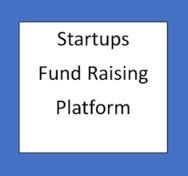In the ever-evolving world of decentralized finance (DeFi), innovation is the name of the game. From algorithmic stablecoins to decentralized exchanges (DEXs), every advancement shapes the way we interact with financial systems. One of the most compelling developments gaining traction is The Soft DAO — a new breed of decentralized autonomous organization that emphasizes flexibility, inclusivity, and composable governance.
What Is The Soft DAO?
The Soft DAO isn’t a single organization but rather a philosophical and structural evolution of the traditional DAO model. While conventional DAOs are often rigid, with predefined rules encoded in smart contracts, Soft DAOs aim to prioritize adaptability, community involvement, and progressive decentralization.
Imagine a DAO that evolves organically — not one governed strictly by hardcoded logic, but one where governance is shaped by community discourse, dynamic voting systems, and modular tooling. That’s the essence of The Soft DAO.
Key Characteristics of The Soft DAO
1. Modular Governance
Rather than relying on a fixed governance framework, Soft DAOs use a modular system of governance primitives. These primitives — such as token-weighted voting, reputation scores, or quadratic voting — can be swapped in and out depending on the needs of the community. This flexibility allows for continuous experimentation without breaking the system.
2. Progressive Decentralization
Soft DAOs embrace the idea that decentralization is a journey. Initially, a core team may steer the project to ensure stability. Over time, power is gradually handed over to the community through phased governance rollouts, ensuring a smoother transition than the “launch and abandon” style seen in early DeFi DAOs.
3. Community-Centric Culture
While hard DAOs often suffer from voter apathy and poor participation, Soft DAOs put culture and collaboration at the center. Decision-making processes are often supplemented with off-chain social tools like forums, Discord, and Snapshot to foster open dialogue before any on-chain vote.
4. Composable Governance
Thanks to innovations in governance frameworks like Zodiac (by Gnosis Guild) or Moloch V3, Soft DAOs can plug into a suite of smart contracts and tools — everything from treasury management to cross-DAO collaborations — without having to build everything from scratch.
Real-World Applications
Soft DAOs are particularly suited for:
- Grants programs: where funding decisions benefit from social consensus and discretion.
- Art and creator communities: where culture and community identity matter more than raw efficiency.
- Protocol governance labs: where experimentation with new voting mechanisms is part of the process.
For example, a DeFi protocol launching a new lending market might use a Soft DAO to fund early ecosystem participants, test incentive models, or pilot governance features before committing them to the core protocol.
Benefits and Trade-Offs
Benefits:
- Greater flexibility and adaptability
- Stronger community involvement
- Safer evolution of governance structures
Trade-Offs:
- Requires higher coordination
- Potential for ambiguity in early stages
- Reliance on social consensus can be slow
The Future of Soft DAOs in DeFi
As DeFi matures, so too must its governance models. The Soft DAO offers a compelling vision: one where communities can evolve, experiment, and thrive without being constrained by rigid structures. It strikes a balance between the ideals of decentralization and the realities of human coordination.
In a world that’s moving from code is law to community is king, The Soft DAO may be the bridge that brings scalable, resilient governance to the next generation of decentralized protocols.
NOTE: Obtain further insights by visiting the company’s official website, where you can access the latest and most up-to-date information:https://icodrops.com/the-soft-dao/ Disclaimer: This is not financial advice, and we are not financial advisors. Please consult a certified professional for any financial decisions

